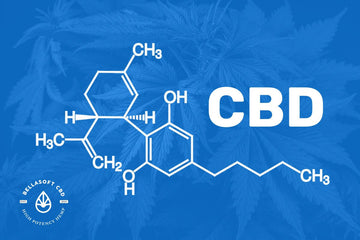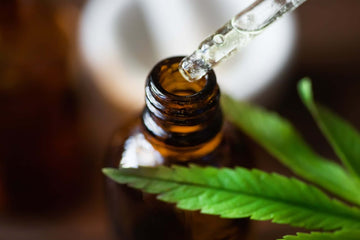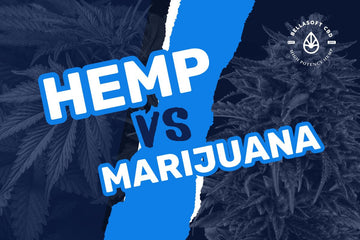Welcome to the ultimate hemp beginners guide from Bellasoft CBD. Hemp can be confusing with all the buzzwords and misinformation out there.
Psychoactive, Intoxicating? Broad Spectrum, Full Spectrum? CBD Oil, Hemp Oil? It’s no wonder some people get confused over this stuff!
Whether you’re looking to learn about hemp and its many facets for the first time or you’re looking to enhance or refresh your knowledge, this guide is sure to offer valuable insights for every reader!
Ready to get started? Continue below to dive into the fascinating world of hemp and discover the infinite possibilities of this amazing plant!
Key Takeaways
-
Hemp is a versatile plant distinct from marijuana.
-
Hemp offers numerous benefits, including eco-friendly uses.
-
Legal status of hemp varies by region; always check local laws.
-
Hemp can be used in food, textiles, wellness products, and medical uses for cannabinoids.
-
Choose quality hemp products by checking labels and sourcing.
-
Hemp oil differs from CBD oil; know what you're buying.
-
Growing hemp at home requires specific conditions and knowledge.
What is Hemp

A Quick Overview
Hemp is a variety of the Cannabis sativa plant species that contains cannabinoids like Cannabigerol (CBG) and Cannabidiol or CBD. Marijuana, the hemp plant’s psychoactive cousin also contains cannabinoids, so the two are similar in that regard; however, there is a key difference–while marijuana is classified by its high potency of THC, Hemp has very low concentrations of CBD.
As I’m sure you’re aware, THC is the cannabinoid responsible for the cannabis plant’s psychoactive effects on the Endocannabinoid System (ECS), and since hemp naturally has low amounts of THC, it generally does not possess the properties to induce an intoxicating high.
Historical Uses
Hemp has been used for thousands of years. Ancient civilizations utilized hemp in various ways. They made textiles, paper, and ropes from its fibers. The strong fibers were ideal for making durable products.
Textiles and Paper
One of the primary uses of hemp was in textiles. People used hemp to make clothing and other fabric items. It was also used to produce paper. Hemp paper was more durable than wood-based paper.
Ropes and Sailing
Hemp was essential in sailing and maritime activities. Sailors used hemp ropes because they were strong and resistant to saltwater. This made them perfect for ships and boats.
Low THC Content
Hemp plants contain less than 0.3% THC. This low level ensures that hemp does not produce a "high." Because of this, hemp is safe for various industrial uses.
Modern Applications
Today, hemp is still valuable. It is used in building materials, biofuels, and even food products. Hemp seeds are nutritious and rich in protein.
Hemp vs. Marijuana

THC Levels
Hemp and marijuana differ in THC levels.
Hemp contains less than 0.3% THC. This low level does not produce a high.
Marijuana, on the other hand, has higher THC levels. It often contains between 5% to 30% THC. This makes marijuana psychoactive.
THC is the compound that causes the high feeling. The low THC in hemp means it cannot be used for recreational purposes. Marijuana's high THC content, packed with nutrient-rich compounds known as cannabinoids and terpenes, makes it popular for both recreation and medicinal uses by interacting with the body's Endocannabinoid System.
Legal Differences
The legal status of hemp and marijuana varies. Hemp is legal in many places due to its low THC content and because CBD interacts with the ECS.
The 2018 Farm Bill in the U.S. made it federally legal to grow hemp. This law allows farmers to cultivate hemp for various uses.
Marijuana laws are stricter. Many states have legalized it for medical or recreational use, but it remains illegal at the federal level, highlighting the differences between hemp and marijuana. The higher THC levels make cannabis and cannabis-derived products subject to more regulations.
Different Uses
Hemp and marijuana serve different purposes. Hemp is used industrially for making products like rope, clothing, and paper. It can also be used in food products like hemp seeds and oil, medical uses for cannabinoids, and Cooling CBD Roll on for Pain. These products do not have psychoactive effects.
Marijuana is mainly used for recreational and medicinal purposes. People use it to experience a high or relieve symptoms of certain medical conditions; hemp and marijuana are similar but very different, especially in the context of CBD vs THC and how CBD interacts with the ECS. Medical marijuana helps with pain relief, nausea, and other health issues due to the benefits of cannabinoids and effects of cannabinoids.
Hemp's versatility makes it valuable in many industries. Its fibers are strong and durable, ideal for textiles and construction materials. Hemp seeds are nutritious and rich in protein, making them a popular health food.
Benefits of Hemp

Nutritional Value
Hemp seeds are highly nutritious. They contain essential omega fatty acids. These include omega-3 and omega-6, which support heart health.
They also provide a complete source of protein. This means they contain all nine essential amino acids. Hemp seeds are a great addition to a balanced diet.
Environmental Impact
Hemp cultivation benefits the environment. It helps improve soil quality. Hemp roots grow deep and help prevent soil erosion.
Hemp also sequesters carbon dioxide. This process reduces the amount of CO2 in the atmosphere. Growing hemp can help combat climate change.
Product Versatility
Hemp is used in many products. It is made into clothing, which is durable and eco-friendly. Hemp fibers are strong and long-lasting.
It is also an ingredient in various foods. Hemp oil, for example, is rich in nutrients and used in cooking.
Biofuel is another use for hemp. Hemp biomass can be converted into fuel. This provides a renewable energy source.
Is Hemp Legal

2018 Farm Bill
The 2018 Farm Bill has a profound and lasting impact on the legality of hemp in the United States.
This bill legalized the cultivation of hemp nationwide. It defined hemp as cannabis with less than 0.3% THC. Farmers can now grow hemp legally, but they must follow strict guidelines.
State Laws
State laws on hemp vary widely. Some states have more relaxed regulations, while others are stricter. For example, Colorado has very lenient laws regarding hemp cultivation and use. In contrast, Idaho has stringent rules that make it hard to grow or sell hemp products.
Residents should check their state’s specific laws before engaging in any hemp-related activities. Some states also require licenses for growing or selling hemp.
International Status
Hemp's legal status differs internationally. In Canada, hemp is legal and widely cultivated. The European Union also allows hemp farming under certain conditions.
However, many countries still have strict bans on hemp. For instance, in Japan, growing or possessing hemp is illegal. These differences can affect international trade and availability of hemp products.
Ways to Use Hemp

Cannabinoid-Rich Hemp Extracts
While hemp contains low amounts of THC, it is abundant in other cannabinoids including CBD, CBG, CBN and many more. Many of these cannabinoids are non-psychoactive and each feature a unique set of properties that provide support for a variety of functions.
The cannabinoids inside hemp are used to produce the vast majority of CBD products on the market today, which includes every Bellasoft product!
From our high-potency Broad Spectrum CBD Oil and powerfully cooling CBD Muscle Roll-Ons to our Dog CBD Oil and Raw Honey Infused CBD Gummies, every Bellasoft product is made in the US using only the highest-quality hemp-derived cannabinoids!
Textiles and Fabrics
Hemp is a popular choice for textiles. Its fibers are strong and durable. Many clothing brands now use hemp in their products. These fabrics are breathable and eco-friendly.
Hemp textiles include shirts, pants, and even shoes. They are also used in making ropes and sails. This versatility makes hemp a valuable resource.
Paper Products
Hemp can be made into paper. It grows faster than trees, making it a sustainable option. Hemp paper is also more durable and resistant to yellowing.
Many companies are starting to use hemp for books, notebooks, and packaging. This shift helps reduce deforestation and promotes sustainability.
Biodegradable Plastics
Hemp is used to create biodegradable plastics. These plastics break down faster than traditional ones. This helps reduce pollution and waste.
Products like packaging materials, bottles, and utensils can be made from hemp plastic. Using these products can help protect the environment.
Health Benefits
Hemp seeds are rich in nutrients. They contain protein, fiber, and healthy fats. People add them to smoothies, salads, and baked goods.
Hemp oil is another health product. It has omega-3 and omega-6 fatty acids. These fats support heart health and reduce inflammation.
CBD products come from hemp plants. They are used for pain relief, anxiety, and sleep issues, like the CBD Muscle Freeze Roll-On. CBD oil, gummies, and creams are popular choices.
Construction Materials
Hemp is used in construction too. Hempcrete is a building material made from hemp fibers and lime. It is lightweight yet strong.
This material provides good insulation. It also absorbs carbon dioxide, making buildings more eco-friendly. Hempcrete is used in walls, floors, and roofs.
Biofuel Production
Hemp can be turned into biofuel. This fuel is renewable and burns cleaner than fossil fuels. Using hemp for biofuel reduces greenhouse gas emissions.
Farmers grow hemp specifically for this purpose. The plant's fast growth makes it an efficient biofuel source.
Choosing Quality Hemp Products

Third-Party Testing
Check for third-party lab testing. This ensures the product's safety and quality. Labs test for harmful substances like pesticides and heavy metals.
Look for a Certificate of Analysis (COA). It provides detailed information about the product's contents and the level of testing that was used.
You can view the latest COAs for all Bellasoft products on our product pages as well as our Lab Reports Page here: https://bellasoftcbd.com/pages/lab-reports
Organic and Non-GMO
Choose products with organic and non-GMO certifications. These certifications ensure the hemp is grown without synthetic chemicals.
Organic hemp is better for your health. Non-GMO products do not contain genetically modified organisms. Both certifications indicate a higher quality product.
Brand Reputation
Research the brand’s reputation before buying. Look for reviews from other customers. Positive reviews often indicate good quality.
Check if the brand has any awards or recognitions. Reliable brands are transparent about their practices. They provide information about their sourcing and manufacturing processes.
Sourcing Practices
Investigate the brand’s sourcing practices. Quality hemp often comes from reputable farms in regions like the U.S. and Europe.
Brands should disclose where they get their hemp. Ethical sourcing practices support sustainable agriculture. This benefits both the environment and consumers.
Product Ingredients
Examine the list of ingredients in hemp products. Avoid products with artificial additives or preservatives.
Natural ingredients are safer and healthier. The fewer ingredients, the better. Always read labels carefully before purchasing.
Customer Support
Good customer support is essential when choosing hemp products. Brands should offer easy ways to contact them.
Look for companies with responsive customer service teams. They can answer questions about their products and policies.
Understanding Hemp Oil

Hemp Seed Oil vs. CBD Oil
Hemp seed oil and CBD oil come from the same plant but differ significantly. Hemp seed oil is extracted from the seeds of the hemp plant. It contains little to no CBD. It's rich in omega-3 and omega-6 fatty acids.
CBD oil, on the other hand, comes from the leaves, flowers, and stalks of the hemp plant. It contains high levels of cannabidiol (CBD). This makes it more suitable for therapeutic uses.
Extraction Methods
The quality of hemp oil depends on its extraction method. Cold pressing is a common technique for hemp seed oil. This method preserves nutrients but yields less oil.
For CBD oil, CO2 extraction is preferred. It uses carbon dioxide under high pressure and low temperatures. This method ensures a pure and potent product.
Another method is solvent extraction. It involves using chemicals like ethanol or butane. Though effective, it may leave residues in the final product.
Health Benefits
Hemp oil offers several health benefits. Hemp seed oil can improve heart health due to its fatty acids. It also supports skin health by moisturizing and reducing inflammation.
CBD oil has potential therapeutic effects. It may help with anxiety, chronic pain, and sleep disorders through the effects of cannabinoids on the body's Endocannabinoid System. Some studies suggest it could reduce seizures in epilepsy patients.
Uses in Cooking
Hemp seed oil is versatile in cooking. Its nutty flavor enhances salads and smoothies. It's best used as a finishing oil due to its low smoke point.
CBD oil can also be added to foods. It's often mixed into beverages or baked goods. However, heating CBD oil can reduce its effectiveness.
Skincare Applications
Hemp seed oil is popular in skincare products. Its moisturizing properties make it ideal for dry skin. It can also soothe irritated skin and reduce acne.
CBD oil is used in creams and balms for its anti-inflammatory properties. It may help with conditions like eczema and psoriasis.
Growing Hemp at Home

Climate Needs
Hemp thrives in warm climates. Ideal temperatures range from 60-80°F. Frost can damage young plants, so avoid cold seasons.
Soil Requirements
Hemp prefers well-drained soil. Loamy soil with a pH between 6-7 is best. Soil quality directly impacts plant health and yield.
Space Considerations
Each hemp plant needs ample space to grow. Plan for at least four feet between plants. This spacing prevents overcrowding and ensures proper airflow.
Legal Permits
Growing hemp requires legal permits. Check local laws before planting. Many regions need specific licenses to cultivate hemp legally.
Pest Control Tips
Hemp is susceptible to pests like aphids and caterpillars. Use natural pest control methods. Neem oil and insecticidal soap are effective.
Harvesting Techniques
Harvest hemp when flowers are mature. This usually occurs around late summer or early fall. Use sharp tools to cut the stalks near the base.
Navigating the Hemp Market

Reputable Brands
Start with reputable brands. These companies have a history of producing quality products. Look for brands that provide lab results for their hemp products. Third-party testing ensures the product's safety and effectiveness. Popular brands often have a wide range of products.
Reputable retailers also matter. They offer verified products and reliable customer service. Buying from well-known stores reduces the risk of getting low-quality hemp.
Product Reviews
Reading product reviews is crucial. Customer feedback provides insights into product performance. Reviews highlight both positive and negative aspects. Look for detailed reviews that discuss specific benefits or issues.
Online forums can be helpful too. Users share their experiences and recommendations. This community-driven information can guide you in making informed choices, learn more, and get to know us.
Market Trends
Stay updated on market trends. The hemp market evolves rapidly with new products and innovations. Following industry news helps in discovering new, effective products. Trends indicate popular and trusted items in the market.
ial media platforms are great sources for updates. Brands often announce new releases and promotions there. Engaging with these platforms keeps you informed about the latest developments and helps you learn more and get to know us.
New Products
New products appear frequently in the hemp market. Trying new items, known as the Entourage Effect, can be beneficial, but do so cautiously. Start with small quantities to test their effectiveness.
Check if new products have certifications or approvals from health authorities. This ensures they meet safety standards.
Hemp is More than Just a Plant
Diving into the world of hemp, including CBD, can be a game-changer. You've learned what sets hemp apart, its benefits, and how to use it. Navigating the market is now a breeze, and you're ready to make informed choices.
Ready to take your hemp journey further? Explore more guides on the Bellasoft Blog. If you found this helpful, share it with friends. Check out Bellasoft CBD's products like CBD Oils, Roll-Ons, Pet Care, and Gummies. Happy hemp exploring!
Frequently Asked Questions
What is Hemp?
Hemp is a variety of the Cannabis sativa plant species containing cannabinoids like CBD and THC. It's grown for industrial uses and contains low levels of THC, the psychoactive compound in marijuana, including CBD and packed with nutrient-rich compounds known as cannabinoids like Cannabigerol (CBG) in the context of hemp vs cannabis.
How is Hemp Different from Marijuana?
Hemp and marijuana are both cannabis plants but differ in THC content, the enhanced effects of multiple cannabinoids combined, and Broad Spectrum CBD differs from Full Spectrum blends. Hemp has less than 0.3% THC, while marijuana has higher levels, causing psychoactive effects.
What Are the Benefits of Hemp?
Hemp offers numerous benefits including nutritional value, eco-friendly materials, and therapeutic properties. It's rich in essential fatty acids, proteins, and can be used in textiles and building materials.
Is Hemp Legal?
Yes, hemp is legal in many countries including the USA, provided it contains less than 0.3% THC. However, laws vary by region, so always check local regulations.
How Can I Use Hemp?
Hemp can be used in various ways such as dietary supplements, skincare products, clothing, and even construction materials like hempcrete.
How Do I Choose Quality Hemp Products?
Look for third-party lab testing results to ensure purity and potency. Opt for organic and non-GMO products to avoid harmful chemicals.
Can I Grow Hemp at Home?
Growing hemp at home is possible but regulated. You need to comply with local laws and licensing requirements to cultivate hemp legally.






